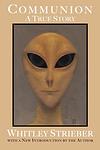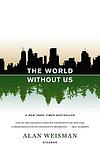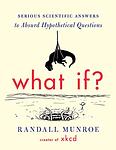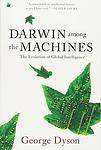The Greatest American "Nonfiction, Speculative Fiction" Books Since 1970
Click to learn how this list is calculated.
This list represents a comprehensive and trusted collection of the greatest books. Developed through a specialized algorithm, it brings together 290 'best of' book lists to form a definitive guide to the world's most acclaimed books. For those interested in how these books are chosen, additional details can be found on the rankings page.
Genres
Speculative fiction is an umbrella genre encompassing narrative fiction with supernatural or futuristic elements. This includes genres such as science fiction, fantasy, horror, supernatural fiction, superhero fiction, utopian and dystopian fiction, apocalyptic and post-apocalyptic fiction, and alternate history. The unifying factor of speculative fiction is its departure from the narrative constraints of reality, exploring imaginative and often profound questions that challenge our understanding of the world and our place within it. These stories often delve into themes like the human condition, social commentary, and the exploration of philosophical and ethical dilemmas through the lens of the fantastical or the yet-to-be-possible. By pushing the boundaries of the known, speculative fiction invites readers to consider the myriad possibilities of existence and the potential consequences of our actions in worlds that are, at once, vastly different from and eerily similar to our own.
Countries
Date Range
Reading Statistics
Click the button below to see how many of these books you've read!
Download
If you're interested in downloading this list as a CSV file for use in a spreadsheet application, you can easily do so by clicking the button below. Please note that to ensure a manageable file size and faster download, the CSV will include details for only the first 500 books.
Download-
1. Communion by Whitley Strieber
The book is a gripping account of the author's personal experiences with unidentified flying objects and alleged extraterrestrial beings. It delves into a series of encounters that challenge the boundaries of reality, beginning with strange occurrences at a secluded cabin and culminating in face-to-face interactions with mysterious visitors. The narrative explores themes of fear, curiosity, and the search for understanding as the author grapples with the implications of his experiences, questioning the nature of consciousness and what it means to be human in a universe where we may not be alone. The book has sparked considerable debate and has become a seminal work in the UFO and alien encounter literature.
-
2. The World Without Us by Alan Weisman
This book is a thought-provoking exploration of what would happen to the natural and artificial world if humans suddenly disappeared. It delves into how our massive infrastructure would decay and how, over time, the Earth would heal from human impact, erasing all traces of our civilization. The author uses this premise to illustrate the lasting impact of humanity on the planet, providing a unique perspective on issues like climate change, pollution, and deforestation.
-
3. What If? by Randall Munroe
This book is a fascinating exploration of bizarre and hypothetical questions, blending humor with scientific accuracy to illuminate the complexities of the universe. The author, a former NASA roboticist with a penchant for the absurd, delves into a wide range of speculative scenarios, from the outcomes of a baseball pitched at near-light speed to the possibility of a machine capable of erasing specific memories. Through engaging explanations and stick-figure illustrations, the book makes complex scientific principles accessible and entertaining, encouraging readers to ponder the infinite "what ifs" our world offers.
-
4. Darwin Among The Machines by George B. Dyson
"Darwin Among The Machines" explores the evolution of technology, tracing its origins from the 17th century to the present, and speculates on its future development. The book delves into the history of computing and artificial intelligence, drawing parallels between biological evolution and technological advancement. It suggests that machines are likely to evolve autonomously and may eventually surpass human intelligence. The narrative combines historical facts with philosophical insights, examining the implications of increasingly intelligent and independent machines on human society.
Reading Statistics
Click the button below to see how many of these books you've read!
Download
If you're interested in downloading this list as a CSV file for use in a spreadsheet application, you can easily do so by clicking the button below. Please note that to ensure a manageable file size and faster download, the CSV will include details for only the first 500 books.
Download


